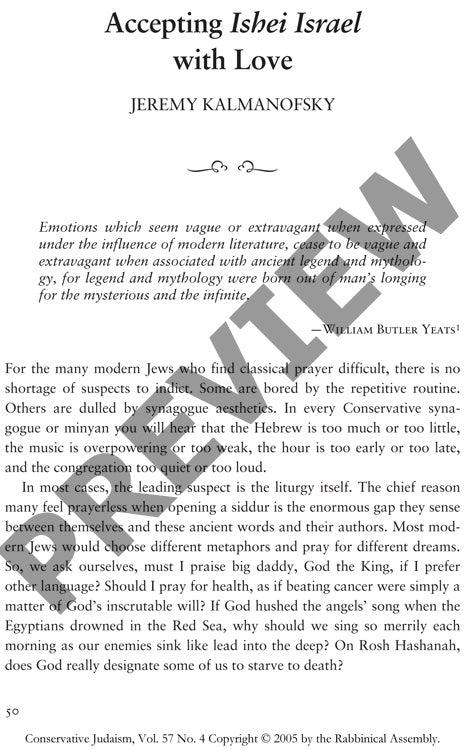Accepting Ishei Israel with Love
Couldn't load pickup availability
The Conservative movement's removal of "Ishei Israel" from Jewish liturgy represents a missed opportunity to engage meaningfully with traditional prayer language. Rather than requiring literal interpretation as a plea for restored animal sacrifices, this ancient phrase can serve as religious poetry expressing timeless themes of gift-giving, gratitude, and spiritual devotion. Philological analysis combined with traditional commentary reveals that both semantic (p'shat) and midrashic (drash) readings support understanding "Ishei Israel" as referring to spiritual offerings or prayer itself. Alternative etymologies suggest "ishe" signifies "gift" rather than "fire-offering," while halakhic literature provides evidence for interpretations fully compatible with contemporary Jewish practice. Drawing on critical textual analysis, classical rabbinic sources, medieval commentaries, and modern religious scholarship, this research challenges the "unsympathetic exegesis" that removes ideologically challenging liturgical elements. Instead, it advocates for "sympathetic prayer book exegesis" that seeks deeper meaning in traditional texts. Excising such phrases ultimately impoverishes Jewish prayer by eliminating opportunities for mythopoetic engagement with tradition. Modern Jews can maintain traditional liturgical language while developing richer interpretive frameworks that reveal spiritual meaning in ancient texts.

More Information
-
Physical Description
-
Publication Information
Published 2005
ISBN
-
Publication Credits
Jeremy Kalmanofsky

